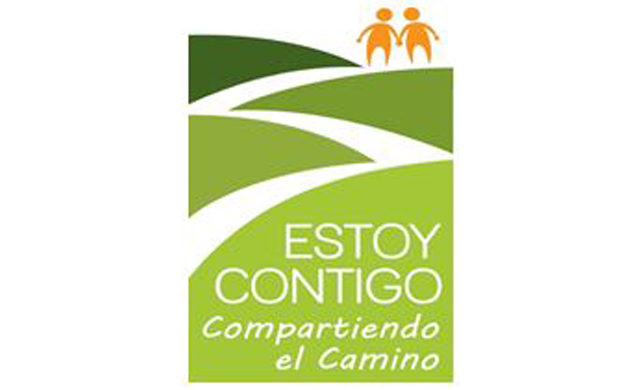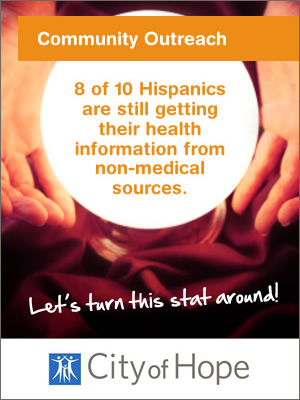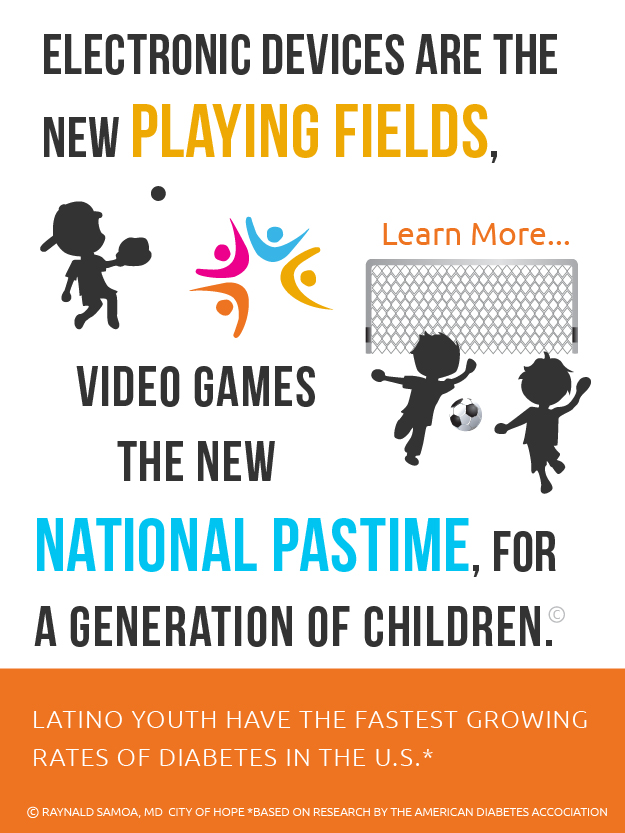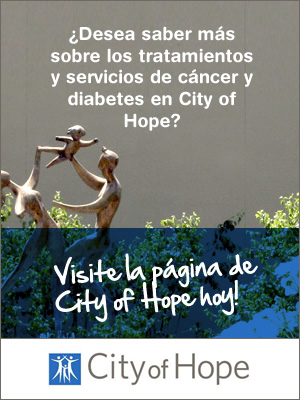
Let’s Embrace Research -- It Can Teach Us the Darndest Things
03/24/2015 10:01AM | 7318 viewsA wise man once asked me how I envisioned the future of Latinas Contra Cancer (LCC), the organization I founded in 2003. I said it would be the Latino American Cancer Society, only focused on service not research. Let somebody else worry about the research!
That was naive on my part. Over the years as I’ve struggled to find funding to get the cancer message out to Latinos and beyond, I came to know you can’t prove a need if you don’t have the data.
As a veteran journalist, who spent my days digging up facts, I should have known better. But finding sufficient research literature that provides a good case for the impact of breast cancer on Latinas is difficult. Much of the work in this area has been done by Latino researchers, who still number too few. And they are less focused on the biology of the disease and more on finding answers to address the impacts; that is, they work less in the lab and more in the field.
But I have come to respect and treasure researchers. In fact, over the years I have made a point of having Latinas Contra Cancer engage as an advocate and partner in research.
We’ve worked with UCSF, San Jose State University and most recently Georgetown University’s Lombardi Comprehensive Cancer Center. This project is interesting for a number of reasons:
- The study targets the impact of the caregiver on the quality of life of the breast cancer patient/survivor.
- The study engages agencies in four sites from Latina Share and Gilda’s Club in New York, Nueva Vida in Washington, D.C. to Latinas Contra Cancer here in San Jose, California.
- Excitingly, this study might also provide a clearer understanding of subpopulations challenged by this disease. It includes Central and South Americans, Puerto Ricans and Dominicans and our large population of Mexicans in San Jose.
- Finally because a fair percentage of the caregivers are male, it gives us an opportunity to understand the impact of a breast cancer diagnosis on men, their psyche, their emotion. It gives us a chance to see if they handle the issue differently from one sub-ethnic group to the next. It gives us a chance to see if we can come up with some great recommendations for helping Latino men better grapple with their own emotions and even lead them to better serve their own health needs.
Sounds big and bold, doesn’t it? And maybe I do expect too much. But I’m pushy that way. It’s the journalist in me that had to turn a story around in 8 hours, not 8 days, 8 months or 8 years.
But the mandate of this PCORI funded grant (Patient Centered Outcomes Research Institute) is to improve the quality and relevance of evidence available to help patients, caregivers, clinicians, employers, insurers, and policy makers make informed health decisions.
The protocol for the study calls for all of the four sites to provide 8 sessions of an educational support group to address themes like the impact of cancer on the family, spirituality, communication, depression, and sexuality. The facilitators (oftentimes trained therapists) separate the caregiver and the patient into two groups for the first 45 minutes and bring them together in the last 45 minutes. This gives the caregivers and the patents the opportunity to uncover their own concerns, and then they are better able to share those in the mixed session.
Too often the caregiver believes they have to tiptoe around the patient, or they can’t share their own fear or pain, or they don’t understand why the patient has moods or tiredness or even depression (symptoms which may be exacerbated by the cancer treatment). At the same time the patient doesn’t want to make the family feel bad so they don’t share their fear, or confusion or anger brought on by this frightening diagnosis. They want to be strong for the family, and as a result, sometimes deny the caregiver and yes, the family, the opportunity to understand and to be supportive.
Some of these responses are common to all groups of men and women, some of them are driven by cultural and social beliefs and values. That’s why understanding sub-ethnic group responses to these challenges can be an eye opener toward serving these populations.
Speaking of challenges this ambitious three-year project has been a revelation in and of itself. It took almost a year to get the sites lined up, the members of each agency trained (some in monolingual Spanish) on Human Subjects Training and HIPAA, that is, confidentiality and patient privacy requirements. Protocols (for recruitment, consenting and program delivery) had to be developed and all documents had to be translated. Los Angeles Latina designer, Andie Villafane, who lost both her parents to cancer, developed the logo (Estoy Con Tigo Compartiendo el Camino). Everything, including translation of materials, had to be approved by the Institutional Review Board (IRB) of Georgetown. Because we are recruiting patients from Santa Clara Valley Medical Center Sobrato Cancer Center, where we navigate Spanish-speaking patients, we too had to go to the local IRB.
The recruitment process itself has a number of steps. Engaging the patient, encouraging their caregivers (not always the husband) to commit to the eight sessions. The interviews take up to one and a half hours. Survivor and caregiver pairs then wait until enough are recruited to make up a group of 8-10 pairs. During that time, life gets in the way and a patient or caregiver has other obligations that cause them to drop out. LCC recruited 15 pairs and lost 5 before we were ready to start.
This has been a work in progress with over a year to go. It’s a recipe for many researchers on the labor intensiveness and patience required to work in community, especially, underserved, low income and minority communities, who have language and cultural barriers, that must be addressed for the researcher to be successful.
Trust must be built. Unfortunately too many community members hold onto beliefs that they are being used; that they are guinea pigs; that research is an extension of government. Communication and clarity can begin by working with advocates who have the language and cultural competence to bridge the gap in building confidence and acceptance.
Incentives should be budgeted. We provide stipends, mileage and childcare support to help the participants help us. The community needs to realize that they are of value and have something of value to share; that must be shared in order for the health system to provide better quality service and support for everybody.
This kind of research engagement is a win-win for all of us. A win is when one couple, after the third session, came to the facilitator and asked for one on one counseling. The support group brought up for them unresolved issues painfully sharpened by a breast cancer diagnosis. If the outcomes for this one couple are greatly improved as a result of this project, then we are all better served.
To learn more about the project, or for Latinos who live in or near New York City, Washington DC or San Jose, please call: 202-687-0806 (Español or English) or email: nuevavidastudy@georgetown.edu
PCORI AD-12-11-5365 to Georgetown University/Lombardi Comprehensive Cancer Center (Graves); Community Partners- Nueva Vida (Ascencio), SHARE (Sampayo), Gilda’s Club NYC (Torres) and Latinas Contra Cancer (Duron)











Post your Comment
Please login or sign up to comment
Comments